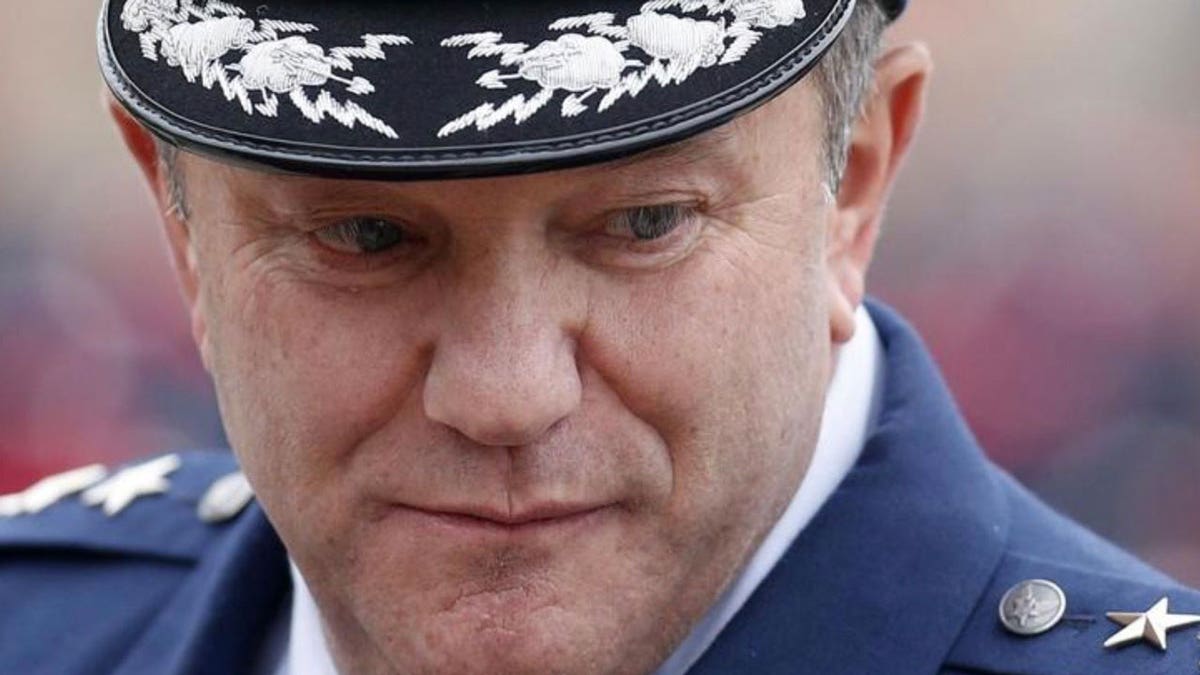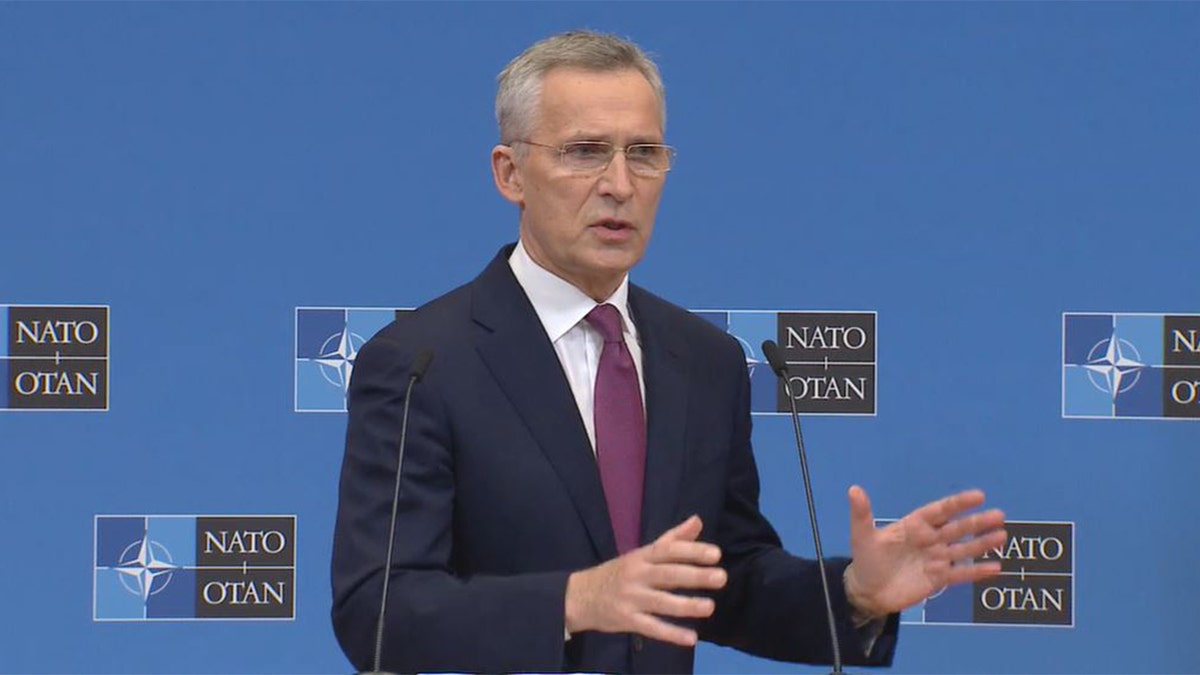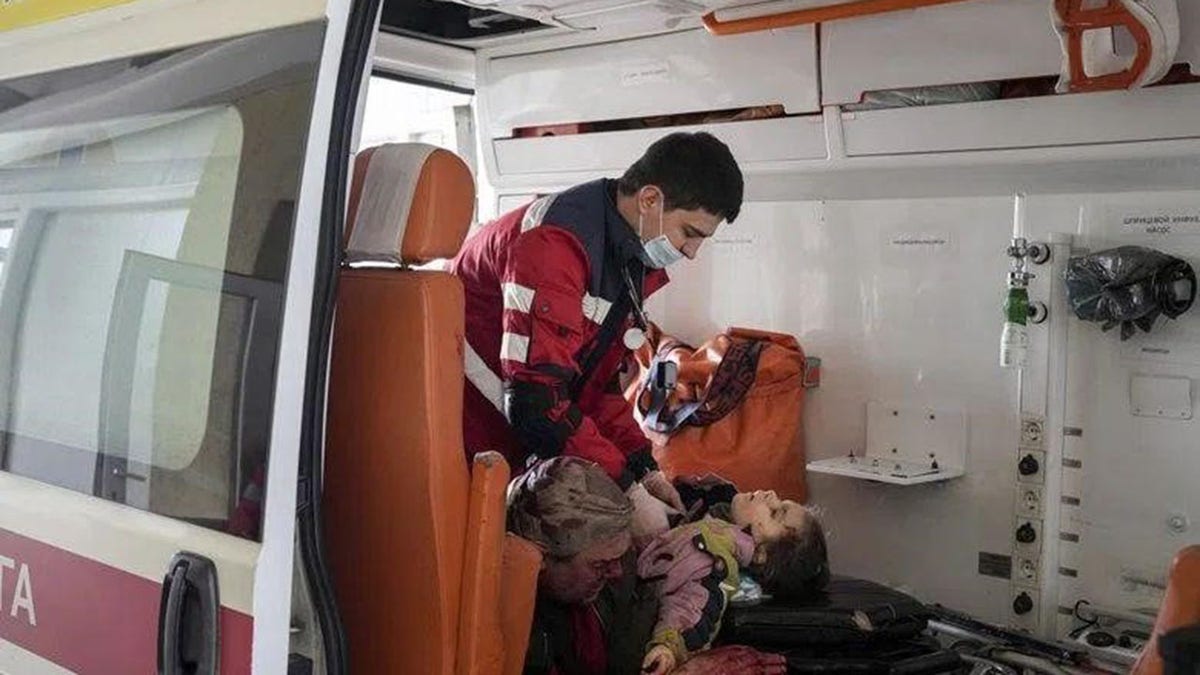The sanctions have yet to change Putin's actions: Former NATO supreme allied commander
Gen. Philip Breedlove reacts to NATO rejecting a no-fly zone over Ukraine on 'The Story.'
On a day when NATO's Secretary-General Jens Stoltenberg once again ruled out a no-fly zone for Ukraine, a new suggestion for a humanitarian no-fly zone has been floated by NATO’s former supreme allied commander in Europe, retired Gen. Philip Breedlove.
Breedlove told Fox News Digital that something more has to be done to help the Ukrainian people against Russia’s ongoing military offensive.
Breedlove, a retired four-star U.S. Air Force general who was the NATO supreme allied commander from 2013-2016, asked, "At what point does the west determine that we have to do something a little more concrete to aid the Ukrainian people?"
RUSSIA-UKRAINE WAR: LIVE UPDATES
"What is it that we stand for? And what is it that we accept when it comes to Russia destroying a nation and terrorizing a people?" He said he was not looking to attack any person or government, and noted that he is not a political person, but said difficult questions need to be asked.

Retired U.S. General Philip Breedlove, NATO Supreme Allied Commander Europe, in a November 2014 file photo. (REUTERS/Stoyan Nenov)
Breedlove said the fastest way to get his plan up and running for a humanitarian no fly-zone would be through "a coalition of the willing," which he said would be a step down from a military no-fly zone and have different rules of engagement. Having recently voiced support for a military no-fly zone he also warned of the dire consequences that would come with it, noting that it would be tantamount to war. "If you declare a military no-fly zone, you have to be ready to defend it."
He explained how the humanitarian zone would work. "The rules of engagement would be that we are constructing a humanitarian operation to allow for humanitarian relief corridors and all other manner of things on the ground below them. We are not going to fire on our opponent unless our opponent fires on us. And so, we tell the opponent that this is a humanitarian no-fly zone. We will not fire on your ground stations unless you fire on us, and we will not fire unless fired upon."
Breedlove, a Distinguished Chair for the Middle East Institute's Frontier Europe Initiative, told Fox News Digital that "it would be something where we would transmit to our opponent what we are doing in order to stay out of a more bellicose posture. But it would be really up to the opponent how it would proceed if we went in there and tried to have a no-fly zone over the western half of Ukraine."
Western Ukraine has so far not seen or felt the Russian offensive and it’s where many Ukrainians have fled to. He noted the extent of how it would help save civilians but said it still comes with many risks attached to it. "We could get medical supplies and relief in, and humanitarian and medical tragedy out. If we set that up and then the opponent fired on us, then we would be in a situation where it would not be easy or perfect either, but it is definitely a step down from a military no-fly zone where we absolutely would go in and enforce it and take those strikes that would be required to make sure that no one else could fire on us in the no-fly zone."

NATO Secretary-General Jens Stoltenberg took questions from reporters Friday, March 4, 2022. (NATO)
FLORIDA STUDENT ON HOW HE'S TRACKING RUSSIAN OLIGARCHS' PRIVATE JETS
On Thursday, the U.N. refugee agency said that 1 million people had fled Ukraine since the start of the Russian invasion last week, also warning that number could eventually rise to 4 million as the bloodshed worsens.
Ukrainian President Volodymyr Zelenskyy again called for a no-fly over his country, Thursday, and as it continues to be rejected by NATO and the West, Alan Mendoza, the executive director of the Henry Jackson Society in England, told Fox News Digital that there was a clear disconnect between the narrative that "Putin must fail, and then failing to take the full extent of actions that might lead to this outcome."
Mendoza has another idea of how to implement a military no-fly zone which would be concentrated in the country’s west: "It is clear that a no-fly zone and safe haven established in western Ukraine by NATO forces would mark a sensible escalation of NATO action in support of a free Ukraine, while eliminating the concern that we would be going immediately toe to toe with Russian forces located in the north, south and east. As such it is the obvious next step to wrest the initiative in this invasion back from Mr Putin, who currently enjoys the luxury of dictating the scale and pace of action."
Mendoza argued "The western Ukraine option has been wrongly subsumed in the more general no-fly zone debate. If the Biden Administration were wise, it would get ahead of the game on the former and start lobbying allies now as it is likely that a future atrocity by the Russians will lead to huge public pressure to act in a meaningful way, and this option makes strategic sense without the danger of escalation."
Just this week Germany announced that it was sending more military aid to Ukraine including surface-to-air-missiles and anti-tank weapons. Meanwhile Great Britain, a stalwart member of NATO, announced it too was sending more lethal defensive weapons to Kyiv.

Ustinova cited estimates that more than 2,000 civilians have been killed in the Russian bombardment. (Oleksandra Ustinova)
UKRAINE CONFLICT ‘HEIGHTENS THE RISK’ OF CHINESE AMERICAN WAR, PROFESSOR SAYS
Nile Gardiner, director of The Heritage Foundation’s Margaret Thatcher Center for Freedom, told Fox News Digital that while a no-fly zone remained highly unlikely, even as NATO has finally started to speed up its operations supplying material and supplies, it should have acted quicker with regard to the Russian onslaught in Ukraine. "Some of this may be late in the game, but any military assistance that can be given by NATO remains absolutely vital for Ukraine's defense."
Gardiner said that going forward he expects that NATO will show, "a far greater degree of urgency and more strategic planning going into sending the defensive weapons that Ukraine needs. Much of this should have been done months ago, even years ago."

A map of NATO members. (Fox News)
CLICK HERE TO GET THE FOX NEWS APP
Gardiner, who was an adviser to former British Prime Minister Margaret Thatcher, said that while Putin is fearful of NATO, he predicts he will try to test its resolve meter by going after the Baltic states next, even possibly in the next few months. "In fact, Lithuania would be, in my view, the immediate target of Russian aggression."
The Associated Press contributed to this report.













































